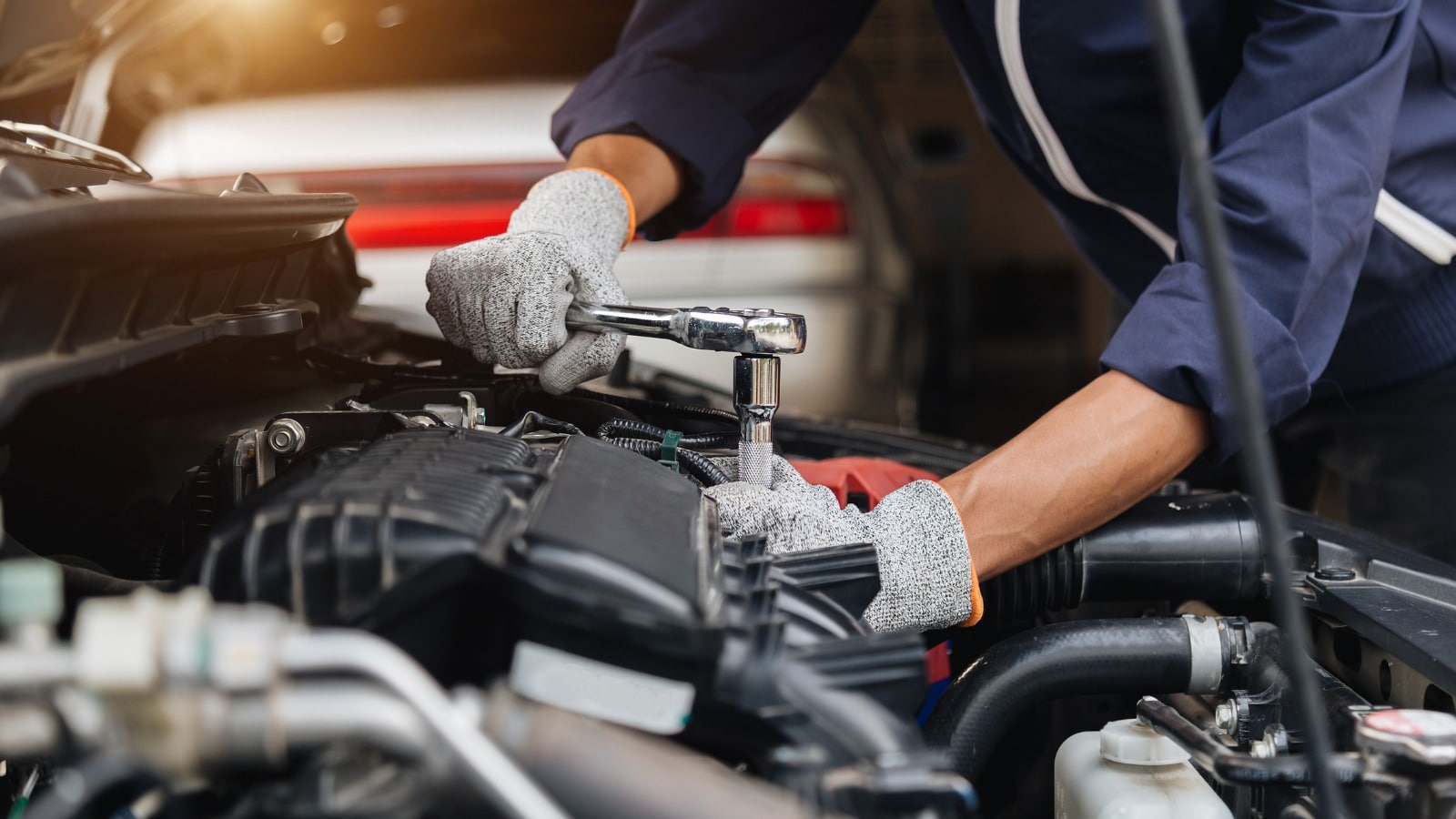Did you know that regular car tune-ups can improve your vehicle’s fuel efficiency by up to 30%? That’s right, folks! As a gearhead who’s been tinkering with engines for quite a while, I can’t stress enough how crucial a proper tune-up is for keeping your ride running smoothly. In this guide, I’ll walk you through everything you need to know about car tune-ups, from DIY tips to when it’s time to call in the pros. Let’s dive under the hood and get our hands dirty!
TL;DR: Car Tune-Up Essentials
- Regular tune-ups save money: They improve fuel efficiency and prevent costly repairs.
- DIY basics: Change spark plugs, air filter, and check fluids regularly.
- Know your limits: Leave complex tasks to pros if you’re unsure.
- Don’t ignore warning signs: Address check engine lights promptly.
- Beyond the basics: Consider timing belt, throttle body, and transmission maintenance.
- Stay informed: Modern cars need software updates too!
Remember: A happy car means a happy wallet. When in doubt, consult your manual or a trusted mechanic.
| What Exactly is a Car Tune-Up?
Back in my early days as a mechanic, a “tune-up” meant adjusting the carburetor and setting the ignition timing. But boy, have times changed! These days, with all the fancy computer-controlled systems, a tune-up is more about preventative maintenance and ensuring all your car’s systems are working in harmony.
A modern car tune-up typically involves:
- Replacing spark plugs
- Checking and replacing air and fuel filters
- Inspecting the ignition system
- Performing a thorough vehicle inspection
But that’s just scratching the surface. Let’s break it down further, shall we?
| Why Your Car Needs Regular Tune-Ups
Listen up, because this is important! Regular tune-ups aren’t just about keeping your car running – they’re about keeping it running efficiently and safely. I once had a customer ignore his tune-ups for years, and let me tell you, the repair bill he faced was enough to make your eyes water!
Here’s why tune-ups matter:
- Improved fuel economy: Who doesn’t want to save a few bucks at the pump?
- Better performance: A well-tuned engine is a happy engine.
- Reduced emissions: Mother Nature will thank you.
- Preventing major repairs: Trust me, prevention is way cheaper than cure in the auto world.
| The Nuts and Bolts of a Tune-Up
Alright, let’s get into the nitty-gritty of what a tune-up actually involves. Buckle up, ’cause we’re going for a ride through the engine bay!
Spark Plug Replacement: The Heart of the Tune-Up
Spark plugs are the unsung heroes of your engine. These little guys create the spark that ignites the fuel in your engine’s cylinders. Over time, they can get gunked up or wear out, leading to misfires and poor performance.
Here’s a pro tip: When replacing spark plugs, always check the gap! An incorrect gap can lead to all sorts of issues. I once spent hours troubleshooting an engine misfire, only to realize the new spark plugs weren’t gapped properly. Talk about a facepalm moment!
Air Filter Change: Let Your Engine Breathe
Think of the air filter as your engine’s lungs. A clogged air filter can choke your engine, reducing performance and fuel economy. Changing it is usually a quick and easy job that can make a big difference.
I remember working on an old truck that was running rough. The owner swore he’d tried everything, but a quick check revealed an air filter so clogged it looked like it had been through a sandstorm! A simple change, and that truck was purring like a kitten.
Fuel Filter Replacement: Keep the Lifeblood Flowing
The fuel filter keeps nasty contaminants out of your engine. A clogged fuel filter can starve your engine of fuel, leading to poor performance and potential damage.
Replacing the fuel filter can be a bit tricky, especially on newer cars where it’s often part of the fuel pump assembly. If you’re not comfortable doing this yourself, it’s best to leave it to the pros.
Ignition System Check: Spark It Up
The ignition system is responsible for creating and distributing the spark that ignites the fuel in your engine. This includes checking the ignition coils, spark plug wires (if your car has them), and the distributor cap and rotor (on older vehicles).
A faulty ignition system can lead to misfires, poor fuel economy, and even leave you stranded. I once had my own car die on me in the middle of nowhere due to a failed ignition coil. Let me tell you, it’s not fun being your own roadside mechanic!
| DIY Tune-Up Tips: Get Your Hands Dirty
Now, I know some of you are itching to tackle your own tune-up. And hey, I’m all for it! There’s nothing quite like the satisfaction of maintaining your own ride. But before you dive in, here are some tips to keep in mind:
- Get the right tools: A basic socket set, screwdrivers, and a torque wrench are essential.
- Consult your manual: Every car is different, so always check your service manual for specifics.
- Take your time: Rushing a tune-up is a recipe for disaster. Trust me, I’ve learned this the hard way!
- Keep things clean: A clean engine bay makes work easier and helps you spot potential issues.
- Know your limits: If you’re not sure about a particular task, it’s okay to leave it to the pros.
| When to Seek Professional Help
Look, I’m all for DIY, but sometimes you gotta know when to call in the cavalry. Here are some signs it’s time to seek professional help:
- Check engine light: If that pesky light won’t go off, it’s time for some professional diagnostics.
- Complex systems: Modern cars have some seriously complicated systems. If you’re dealing with things like variable valve timing or direct injection, it might be best to leave it to the experts.
- Lack of tools: Some jobs require specialized tools that aren’t worth buying for a one-time use.
- Time constraints: If you can’t dedicate the time to do the job right, it’s better to pay a pro.
Remember, there’s no shame in admitting something’s beyond your skill level. Better to swallow your pride than end up with a bigger problem!
| Beyond the Basic Tune-Up: Advanced Maintenance
For those of you looking to take your maintenance game to the next level, here are some additional areas to consider:
Timing Belt Inspection: The Silent Killer
If your car has a timing belt (many modern cars use timing chains instead), it’s crucial to inspect and replace it according to the manufacturer’s schedule. A failed timing belt can cause catastrophic engine damage.
Throttle Body Cleaning: Smooth Operator
A dirty throttle body can cause rough idling and poor acceleration. Cleaning it can often solve these issues and improve overall performance.
Transmission Fluid Check: Keep It Shifting Smooth
Don’t forget about your transmission! Regular fluid checks and changes can prevent costly transmission repairs down the road.
Coolant System Maintenance: Keep Your Cool
A well-maintained cooling system prevents overheating and extends engine life. This includes checking coolant levels, inspecting hoses, and performing periodic radiator flushes.
| The Future of Tune-Ups: High-Tech Maintenance
As cars become more complex and electrified, the nature of tune-ups is changing. We’re seeing more focus on software updates and electronic system diagnostics. But don’t worry, the basics of good maintenance will always be important!
| Wrapping It Up: Your Tune-Up Action Plan
Alright, folks, we’ve covered a lot of ground here. Let’s recap the key points:
- Regular tune-ups are crucial for performance, efficiency, and longevity.
- Basic tune-ups involve spark plugs, filters, and system checks.
- DIY is great, but know your limits and when to seek professional help.
- Don’t neglect advanced maintenance items like timing belts and transmission fluid.
- Stay informed about changing technology and maintenance needs.
Remember, every car is unique, so always consult your owner’s manual for specific maintenance schedules and procedures. And hey, if you’re ever unsure, don’t hesitate to ask a pro. We’re here to help!
Now, I want to hear from you! What tune-up tasks do you tackle yourself? Any maintenance horror stories or triumphs to share? Drop a comment below and let’s keep this conversation going.
Until next time, keep those engines purring and the rubber side down!



